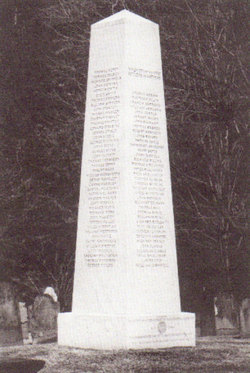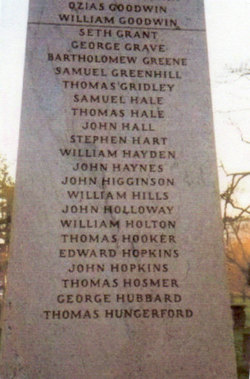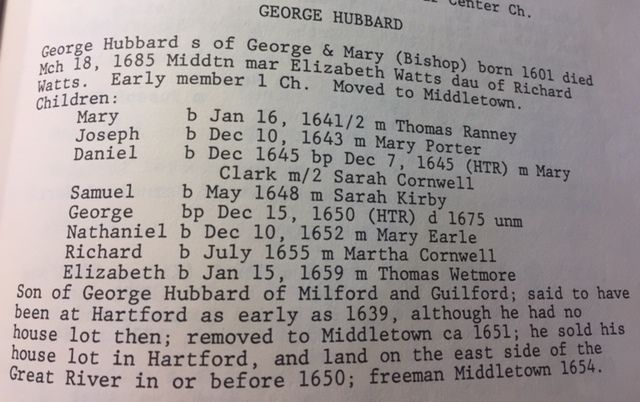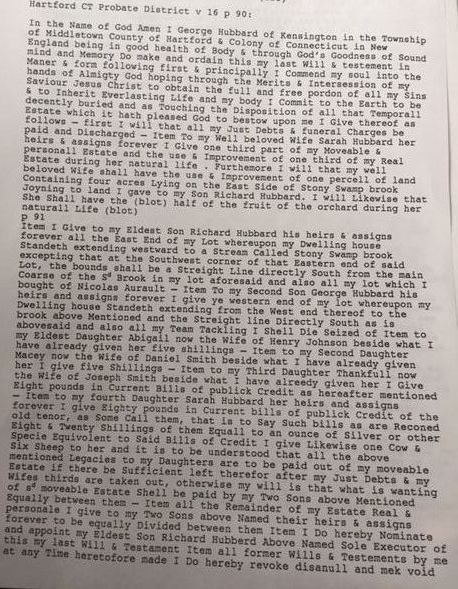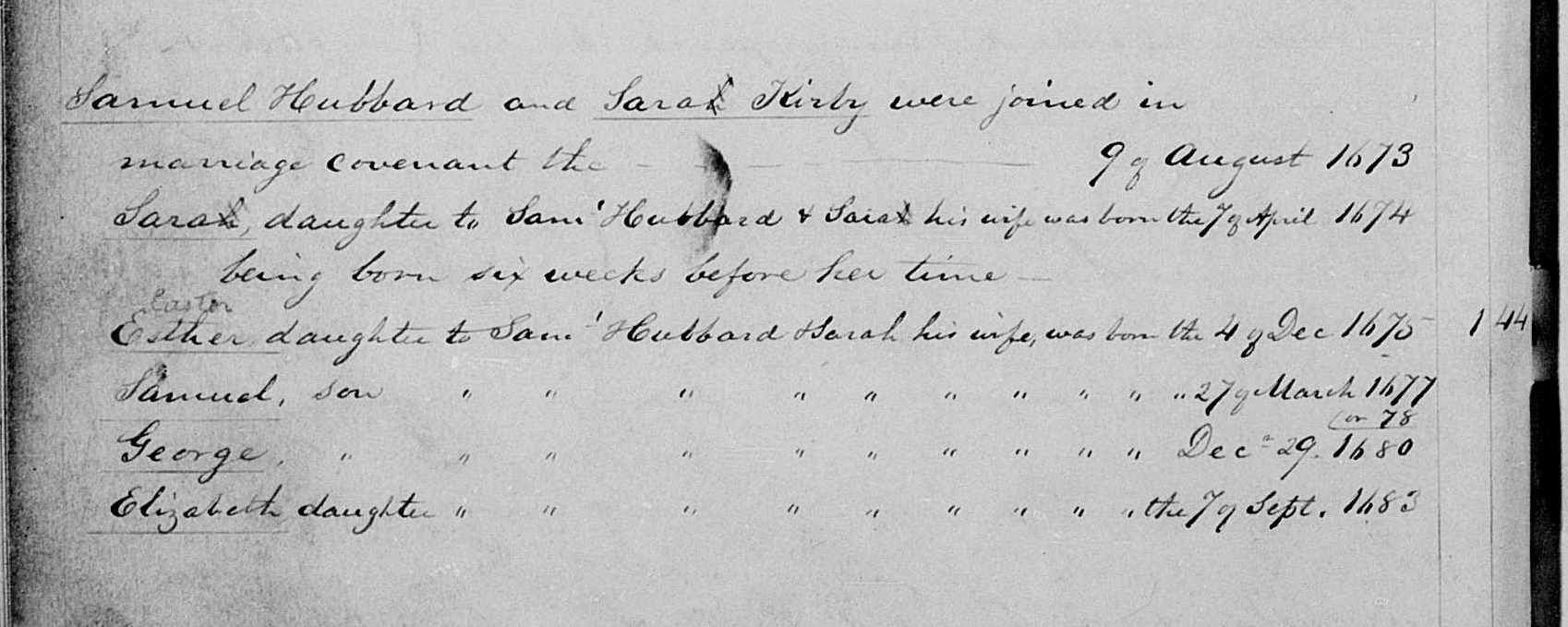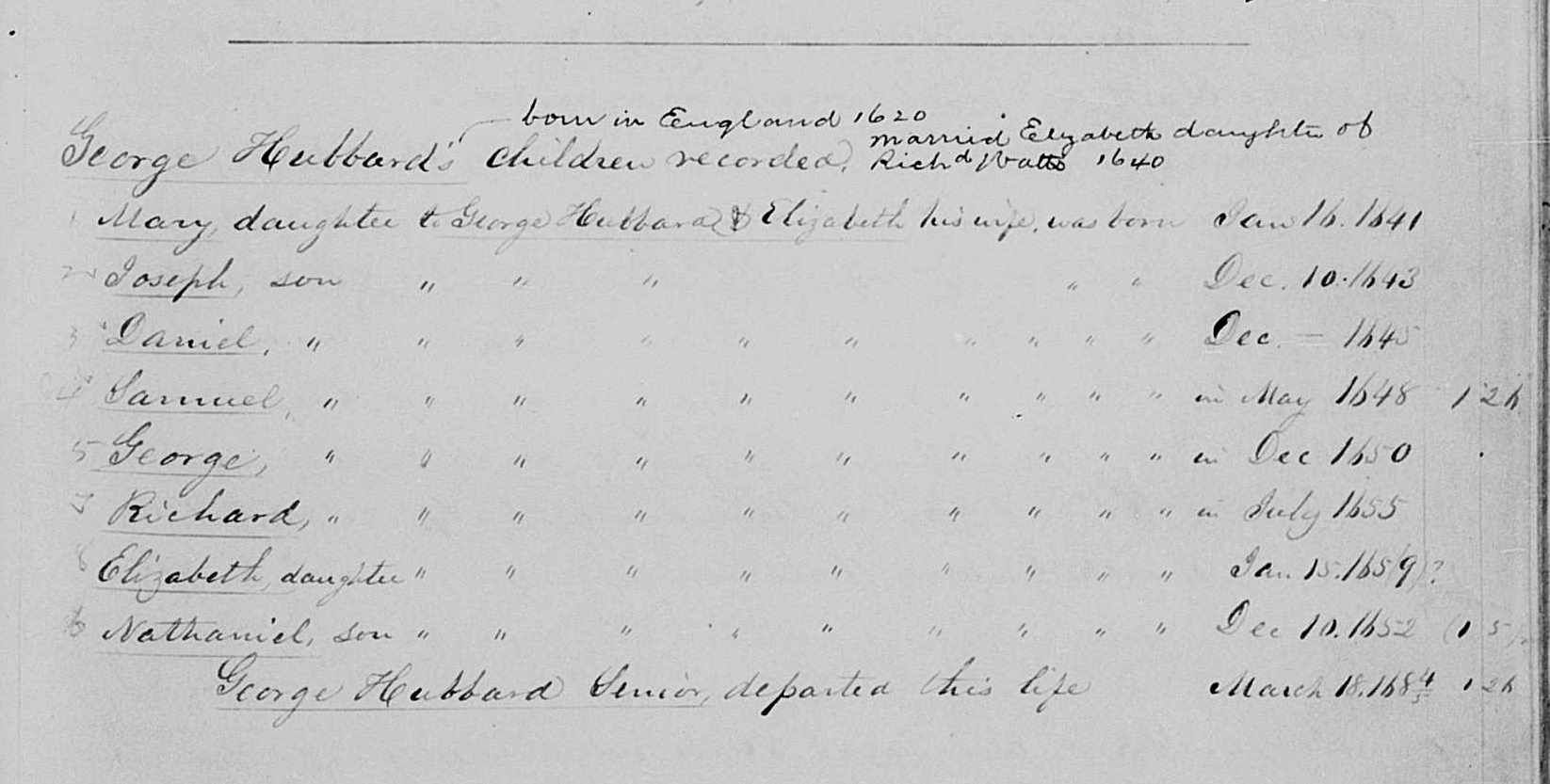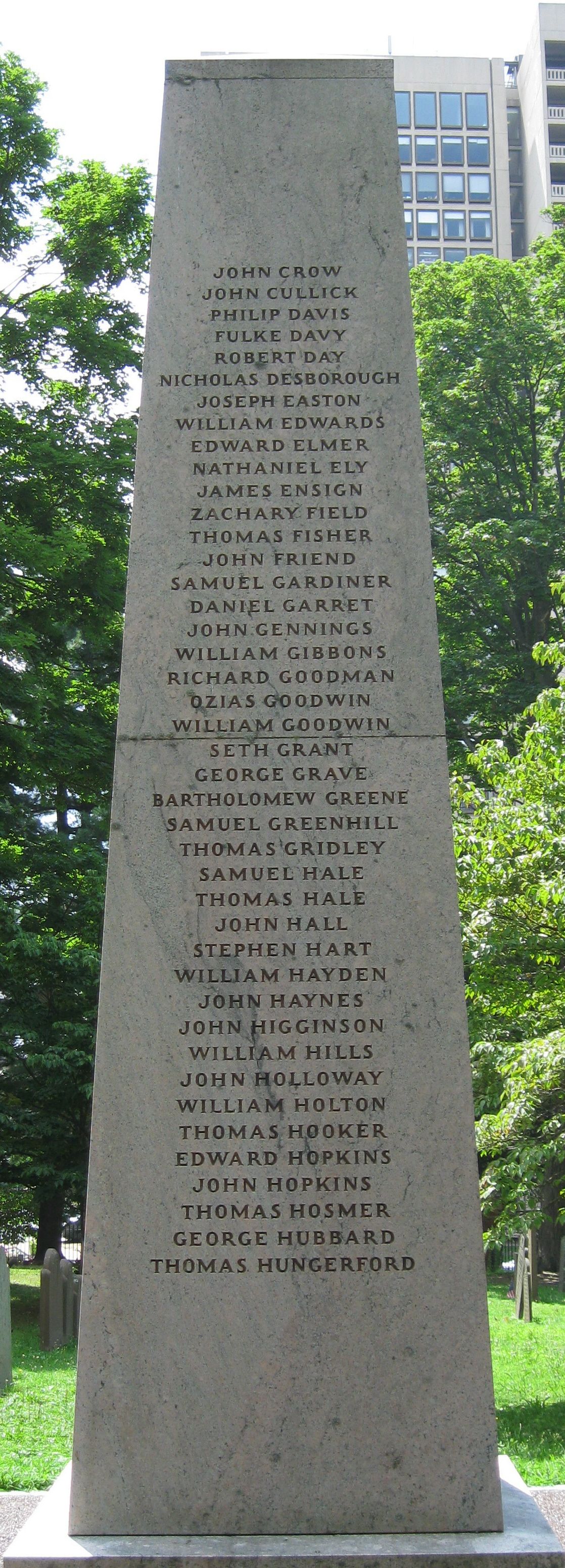George Hubbard did not immigrate at the same time as his parents. He arrived two years later, in September of 1635 aboard the Dorst John Flower.
His name first appears in 1639 in a list of the early settlers of Hartford. These settlers came overland from the vicinity of Boston during the years 1635 and 1636, and located the towns of Windsor, Hartford, and Wethersfield, Ct., also Springfield, Mass. GEORGE HUBBARD was one of the number. He was given six acres of land "by courtesy of the town, with privilege of wood & keeping cows on the common," and resided on a lot adjacent to the land of James Ensign and George Graves on a road that ran parallel with the Connecticut River. This road ran from South Meadow to George Steel's land, and then turned and ran across the "ox pasture" towards Wethersfield, passing near to the Great Swamp. In 1640 he married Elizabeth Watts who was assigned a "home-lot" and land upon the east side of the "Great River." The colonial records show that "William Swanyne and George Hubbard were appointed Sep 4, 1640, appraisers of the estate of Edward Mason," and April 24, 1649, George Hubbard was "fined £10 for exchanging a gun with an Indian."
He appears to have disposed of his land and moved with about fifteen other families in March, 1650-51 to Mattabesett, so called until 1653, when it became Middletown. When he moved from Hartford, he carried with him a commission from the Colonial Government as "Indian Agent and Trader for the Mattabessett District." In 1654 he was made freeman, and settled with is son-in-law, Thomas Wetmore, upon opposite corners on the east side of Main Street. (Thomas Wetmore was the husband of George's daughter, Elizabeth Hubbard. The Wetmores and Hubbards will marry several additional times in succeeding generations) George owned large land tracts on the west side and on the east side of the river. These lands were recorded Sep 5, 1654. He, Thomas Wetmore and two other land owners on the west side of the street, gave land for the second meeting-house.. The records read: "It was agreed at a meeting of John Halls house to build a meeting house and to make it 20 foot square & 10 foot between sill and plat, the heygt of it." This structure was a one-story log house with a palisade around it. GEORGE HUBBARD, living adjacent, was naturally selected as its keeper. Dec 17, 1666, he was allowed "40 shillings for sweeping the meeting-house and keeping the glass [hour glass]. This also included the services of his eldest son, Joseph, who beat the drum to assemble the congregation and to give warning of the approach of Indians.
An appraisement of his property on March 22, 1670, showed George to be worth £90.10s.15d., and in 1673 £ 132.10s. At his death his inventory showed him worth £243.10s., and possessed of a dwelling-house and home lot worth £50, "2 1-3 acres of long meadow" worth £18.10s., 3 "acres of meadow on the east side the Great River" worth £9, a tract at Long Hill of 226 acres, another "parcel west from the towne" of 300 acres, one "parcel on the east side of the Great River" of 464 acres, and the "one-halfe Lott" of 30 acres , a total of over one thousand acres.
One record of him says that he was "highly respected, and of marked integrity and fairness." He appears at this distance of time to have been devout, industrious, and possessed of those sturdy, wholesome qualities of mind and body without which the composition of our country today would not possess He must have been a man of "marked integrity and fairness" to have been selected by the colony as its Indian Trader. Much judgment had to be used by this representative of the colony in these dealings. Promiscuous trading by any one was forbidden, as fire-arms and fire-water were frequently bartered by indiscreet persons, which produced direful results. This resulted in the selection of one man to do the trading for all. On his judgment and prudence much depended. He must have erred, however, at one time, for the Colonial Court fined him £10 for exchanging a gun with an Indian. In a spirit of charity, his descendants are privileged to conjecture that he might have regarded the gun as an old and harmless one and incapable of going off and hurting anyone. He is listed as one of the Puritan Settlers of the Colony of Connecticut.
George was one of the founders of Hartford, CT and his name is on the Founders Stone.
George Hubbard did not immigrate at the same time as his parents. He arrived two years later, in September of 1635 aboard the Dorst John Flower.
His name first appears in 1639 in a list of the early settlers of Hartford. These settlers came overland from the vicinity of Boston during the years 1635 and 1636, and located the towns of Windsor, Hartford, and Wethersfield, Ct., also Springfield, Mass. GEORGE HUBBARD was one of the number. He was given six acres of land "by courtesy of the town, with privilege of wood & keeping cows on the common," and resided on a lot adjacent to the land of James Ensign and George Graves on a road that ran parallel with the Connecticut River. This road ran from South Meadow to George Steel's land, and then turned and ran across the "ox pasture" towards Wethersfield, passing near to the Great Swamp. In 1640 he married Elizabeth Watts who was assigned a "home-lot" and land upon the east side of the "Great River." The colonial records show that "William Swanyne and George Hubbard were appointed Sep 4, 1640, appraisers of the estate of Edward Mason," and April 24, 1649, George Hubbard was "fined £10 for exchanging a gun with an Indian."
He appears to have disposed of his land and moved with about fifteen other families in March, 1650-51 to Mattabesett, so called until 1653, when it became Middletown. When he moved from Hartford, he carried with him a commission from the Colonial Government as "Indian Agent and Trader for the Mattabessett District." In 1654 he was made freeman, and settled with is son-in-law, Thomas Wetmore, upon opposite corners on the east side of Main Street. (Thomas Wetmore was the husband of George's daughter, Elizabeth Hubbard. The Wetmores and Hubbards will marry several additional times in succeeding generations) George owned large land tracts on the west side and on the east side of the river. These lands were recorded Sep 5, 1654. He, Thomas Wetmore and two other land owners on the west side of the street, gave land for the second meeting-house.. The records read: "It was agreed at a meeting of John Halls house to build a meeting house and to make it 20 foot square & 10 foot between sill and plat, the heygt of it." This structure was a one-story log house with a palisade around it. GEORGE HUBBARD, living adjacent, was naturally selected as its keeper. Dec 17, 1666, he was allowed "40 shillings for sweeping the meeting-house and keeping the glass [hour glass]. This also included the services of his eldest son, Joseph, who beat the drum to assemble the congregation and to give warning of the approach of Indians.
An appraisement of his property on March 22, 1670, showed George to be worth £90.10s.15d., and in 1673 £ 132.10s. At his death his inventory showed him worth £243.10s., and possessed of a dwelling-house and home lot worth £50, "2 1-3 acres of long meadow" worth £18.10s., 3 "acres of meadow on the east side the Great River" worth £9, a tract at Long Hill of 226 acres, another "parcel west from the towne" of 300 acres, one "parcel on the east side of the Great River" of 464 acres, and the "one-halfe Lott" of 30 acres , a total of over one thousand acres.
One record of him says that he was "highly respected, and of marked integrity and fairness." He appears at this distance of time to have been devout, industrious, and possessed of those sturdy, wholesome qualities of mind and body without which the composition of our country today would not possess He must have been a man of "marked integrity and fairness" to have been selected by the colony as its Indian Trader. Much judgment had to be used by this representative of the colony in these dealings. Promiscuous trading by any one was forbidden, as fire-arms and fire-water were frequently bartered by indiscreet persons, which produced direful results. This resulted in the selection of one man to do the trading for all. On his judgment and prudence much depended. He must have erred, however, at one time, for the Colonial Court fined him £10 for exchanging a gun with an Indian. In a spirit of charity, his descendants are privileged to conjecture that he might have regarded the gun as an old and harmless one and incapable of going off and hurting anyone. He is listed as one of the Puritan Settlers of the Colony of Connecticut.
George was one of the founders of Hartford, CT and his name is on the Founders Stone.
Family Members
Advertisement
Records on Ancestry
Sponsored by Ancestry
Advertisement
